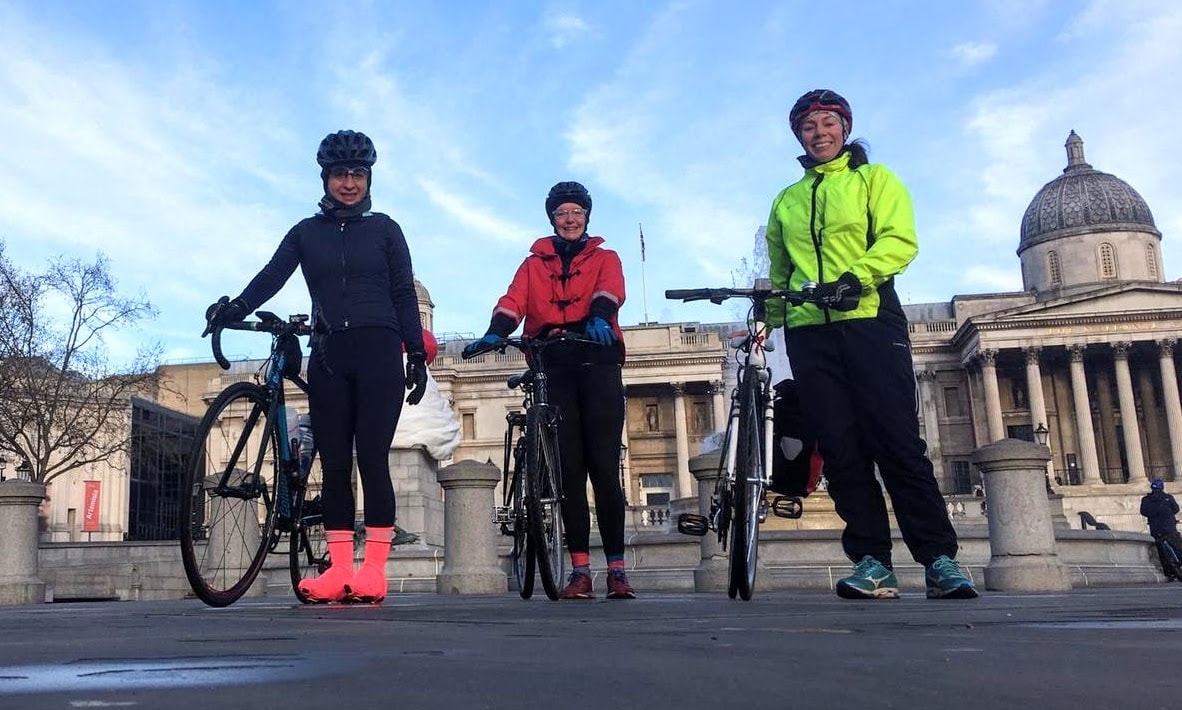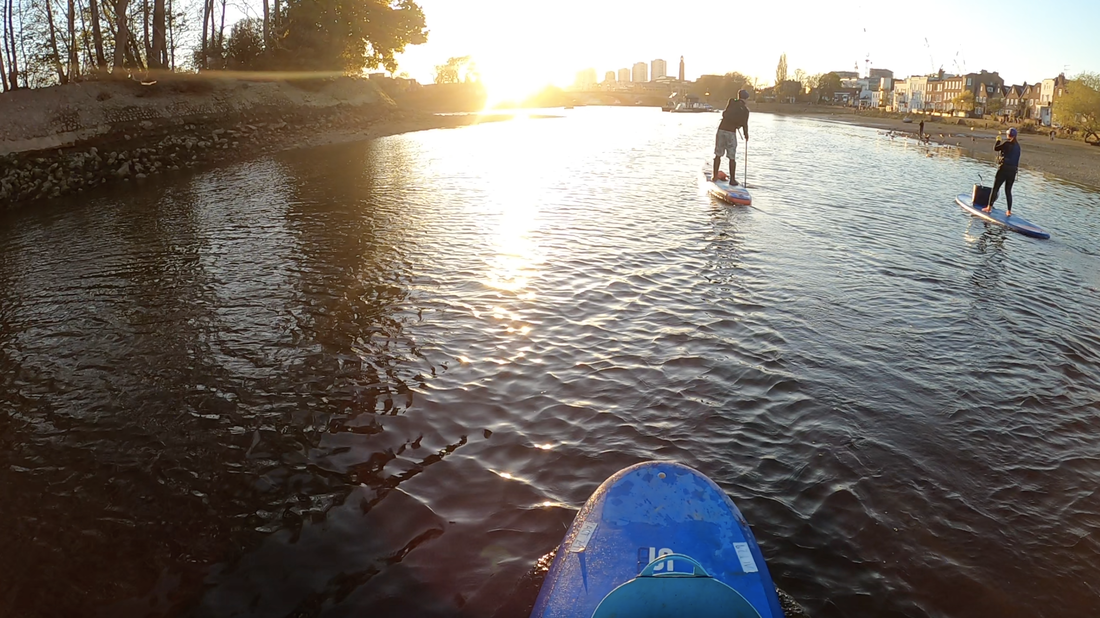|
In the world of multisport events it is definitely ‘that time of year’. If running is your main sport then you are lucky that these races tend to keep going throughout the year. However for open water swimming, road cycling, and of course triathlon the season is very much winding down. I am noticing more and more comments from athletes about missing sessions and in general not having the same motivation to train as they did during the spring and summer. In this post I want to delve a bit further into why this is happening and what we can do about it to keep ourselves motivated, and most of all fit and happy as the days grow shorter. On the whole endurance athletes are pretty self-motivated. But we are all human, and we suffer from the same fluctuations of drive as everyone else from time to time. These dips in motivation can range from the nagging desire to skip training for a day or two to full on slumps where you lose your workout mojo altogether for extended periods of time. This can also be a particularly challenging time of year, because generally your main priority events are done and dusted, and the next season’s activities are still a good way off. Not to mention the darker mornings and evenings and worsening weather. Whilst of course there is a lot to be said for a decent break if you've had a long hard season and a lot of events, in fact these transition periods are essential for mental and physical recuperation. But how do we stop those periods becoming over extended? Are you goal driven? Chances are that if you have been training with some structure for at least a few months, then you will have set yourself some sort of goals. Undoubtedly, the question ‘What am I training for now?’ has popped into all of our heads at some point. In order to remain motivated, we must recalibrate our goals. So you should get a goal in your diary for the not-too-distant future - it means we are far less likely to skip a session when we don't feel like it. Otherwise a downward spiral can kick in - missed workouts lead to a significant drop in fitness levels followed by similar drop offs in mood, self-confidence and overall productivity in life. In contrast, when we have a decent high-level goal in place the opposite tends to happen. Aiming for the goal has a positive effect on motivation, and of course exercise has proven benefits both mentally and physically. Just as importantly, it does a great job of asserting pressure on you to make that crucial first step out of the door on the days when you're feeling less than up for it. This is largely because you're fearful of the consequences of not doing so - namely falling short of the goal in some way. But there are no events! These goals don’t need to be organised events. This is the perfect time of year to set personal goals for yourself. One way to do this is to think long term, think about where you want to be six months or a year from now. Even the most elite athletes can improve, and this is exactly the time of year they make these gains. During the events season, it's all about preparing for an event, but right now you can take the time to focus extensively on improving your limiters, or the areas that may be holding you back. For some this could mean increasing your cycling power, running cadence or working on your swimming stroke. For others it could be improving your body composition, and looking at your nutrition in more detail. This is also a great time of year to work on some base strength training and develop good habits in this area. Take some time to identify two or three weaknesses that you want to improve. Think about what held you back in past events and set realistic short-term goals to help you make progress towards those improvements. Your coach can help you here. Personally I like to set myself a 20km time trial on the bike during the winter to see if I can better it each year. If finding a traffic free section of road is difficult for you then you could focus on improving your watts per kg on the turbo trainer, or if you have access to a wattbike then this is a great tool to look at your pedalling efficiency. This winter I am looking to improve my running pace as I know it probably made the difference for me between a 2nd and 1st place in my age group in a recent standard distance triathlon. Make these goals realistic though - we are thinking big picture here, chip away over the coming months, setting benchmarks every 6-8 weeks. Personally I love these type of goals – they are like the challenge of an event without all of the logistics, travel and stress involved! What else can you do to set yourself up for success? Plan to train with other people. Training with others adds a pressure of not letting them down, makes you accountable to someone else, and this alone is a powerful motivator. Training with others can also be a lot of fun and can help distract you. Think about the sessions which you find particularly difficult, are these first thing in the mornings when the urge to stay under the duvet is stronger than the one to get you out of the door to do that hill rep session? Or do you find yourself missing those evening runs, giving yourself the excuse that you have had a hard day at work? More often than not the pressure of having to show up and not let someone else down is the deciding factor in getting you out and putting in the miles. Yes, even more of a motivator than your session turning red in Training Peaks! You'll usually always find that you either enjoy the training once it's underway, or at very least get a sense of satisfaction from once it's done. Plan tomorrow, tonight. Having the discipline to spend two minutes at the end of each day thinking about what training you're going to do the next day can be hugely beneficial. If you're working to a set training plan, then looking through it can be helpful in making sure that you are mentally as well as physically prepared for it. Logistically make sure that you have your kit looked out, taking into consideration the weather conditions, and that all of your nutrition is organised. This reduces the chances of being tripped up by anything that gives you an excuse to not get the job done. Oh and take the advice of a cycling coach I know – look at the ACTUAL weather outside rather than what your app is predicting. I am always amazed by how many people decide not to do an early morning session the night before on the basis that “It says it is going to rain”. Firstly, these predictions aren’t always accurate, and more importantly, yes, it also rains at races, best get used to it! Perimenopause, Menopause and Motivation Yes, it’s no surprise that women at these life stages can often suffer even more from dips in motivation. Menopause can wreak havoc on your mental health and make you feel off your game. As oestrogen declines, areas of the brain that play a major role in memory learning and emotion regulation decline as a result. These oestrogen fluctuations and decline can lead to mood swings and feelings of panic or anxiety. Not to mention the frustration and low mood that can accompany bouts of brain fog. Add into this negative body image issues which can arise and all of this can wreak havoc on your mood, your motivation and mental game during your menopausal years. Time to train smarter, not longer In addition to the tips on motivation above, women need to change the way they train. When women find that their training isn't working like it used to after hitting their menopausal years, they immediately double down and do more of the same type of training and often restrict calorie intake to boot. But your body is different now, which means you need to train differently. Any lifelong endurance athlete will tell you that as they get older, especially women in menopause, they needed more truly easy days. More strength and mobility work and more short high intensity workouts along with less overall volume. Less is more. Quality is everything. This is where the benefits of HIIT (high intensity interval training) come into play again, along with the importance of strength training. For more information on the whole area of training adaptations during this time, have a look at my blog post here. Try something new If you've been doing the same sport most of your adult life, it might be time to step away for a brief respite and try something new - even if it's just a different variation on the same sport. One athlete I worked with had been a road cyclist for as long as she could remember. She was starting to lose her motivation to compete at the same level and wasn’t enjoying the training as much as a result. After a trial session with a gravel cycling club she was completely hooked, loved the playfulness it brought and now has a whole new lease of life! She has even rekindled her competitive spirit and has entered some races in the sport. At the very least, amp up your passion for your existing sport by incorporating some new angles to it like plyometrics to support your running, or some tai chi to improve your coordination, proprioception, and balance. For me personally, paddle boarding is a great complementary sport which gets me out on the water, and improves my balance and core strength. Then there is the whole area of setting your chosen goal and tracking your progress. There is some interesting research that has been done on how we perceive our progress against what we have actually done (usually we are a lot harder on ourselves than we should be).
This is a whole topic I will cover in my next blog post so watch this space...
0 Comments
|
AuthorDenise Yeats is a coach, personal trainer, endurance athlete and avid adventurer. She is passionate about supporting women to achieve their goals, working with, not against their changing physiology. Archives
July 2024
Categories |
Proudly powered by Weebly





 RSS Feed
RSS Feed